01 Feb2021
By Jane E. West
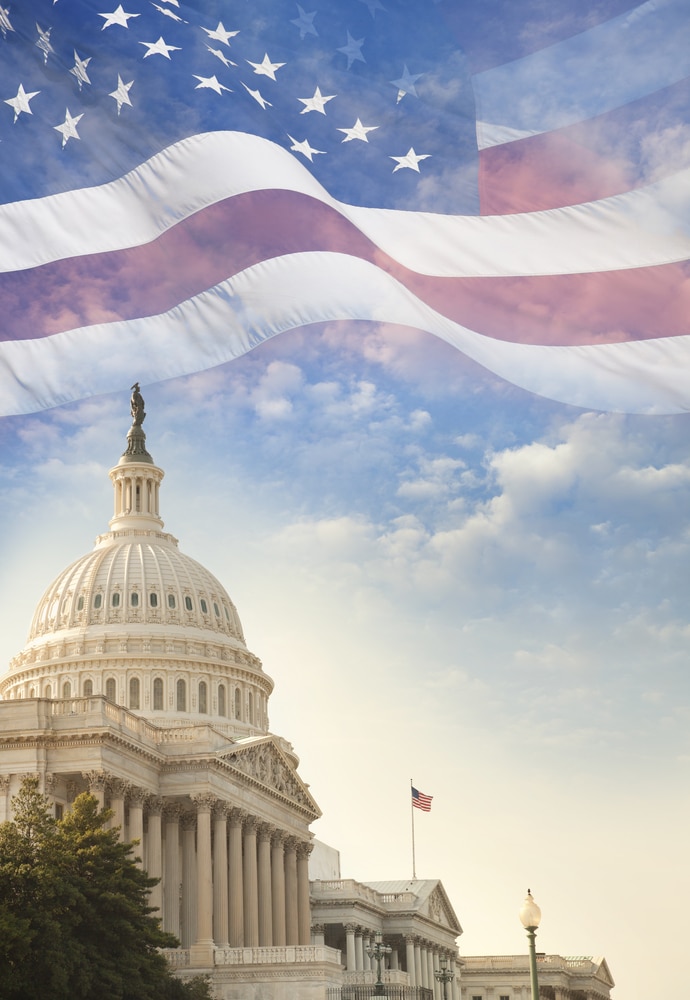 This blog post is written by AACTE consultant Jane West and is intended to provide updated information. The views expressed in this post do not necessarily reflect the views of AACTE.
This blog post is written by AACTE consultant Jane West and is intended to provide updated information. The views expressed in this post do not necessarily reflect the views of AACTE.
Biden’s Executive Action and Political Appointments
This week, President Biden continued with his executive action blitz—signing a series of orders, actions, and memorandums aimed at rapidly addressing the coronavirus pandemic and dismantling many of the former administration’s policies. Among the orders signed to date are several of keen interest to educators, including the restoration of DACA, the repeal of the Trump order on race and stereotyping, an extension of the pause on student loan collection through September, and an order requiring the Department of Education to issue guidance on school re-openings during the pandemic.
Almost a week after being sworn in, President Biden is seeing his Cabinet start to come together. This week the Senate confirmed Antony Blinken, as Secretary of State, Janet Yellen,as Secretary of the Treasury, Lloyd Austin as Secretary of Defense, and Avril Haines as Director of National Intelligence—all with bipartisan votes. Biden awaits confirmation of numerous key Cabinet nominees to lead important agencies—including Justice, Homeland Security, Health and Human Services and the CIA.
19 Jan2021
By Jane E. West
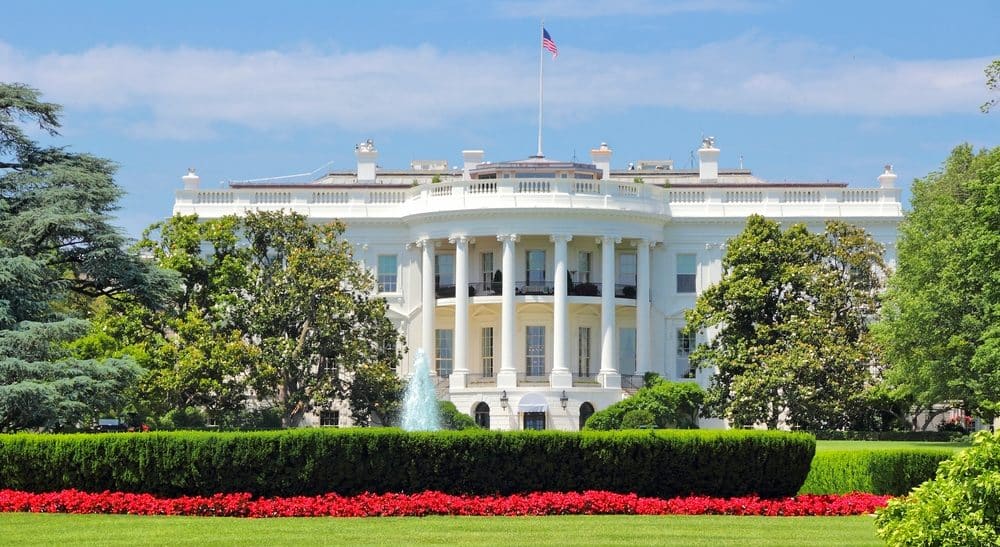
This blog post is written by AACTE consultant Jane West and is intended to provide updated information. The views expressed in this post do not necessarily reflect the views of AACTE.
Yesterday, President-Elect Biden revealed his massive $1.9 trillion COVID relief plan, hoping to jump start consideration in Congress. The goal of the education portion of the bill is to provide enough support for a robust vaccination plan, treatment, and funding to reopen a majority of K-8 schools safely within 100 days. The proposal provides $170 billion for K-12 and higher education. To date, the Congress has enacted almost $113 billion for the Department of Education in COVID relief funds.
Of the $170 billion in education funds, $130 billion would be for K-12 relief intended to cover technology needs; counseling, support for social, emotional, and academic needs of students; provision of smaller classes’ PPE, extra transportation; cleaning costs; and more. The Higher Education Emergency Relief Fund includes $35 billion for public colleges, public and private HBCUs and Minority Serving Institutions to provide online learning and emergency grants to students. A Governors’ fund is allocated $5 billion to support education for areas that have been the hardest hit by COVID, from pre-K through higher education. In addition, $350 billion is made available for state and local fiscal relief, a portion of which may be used for education. Funds are provided for regular testing for teachers and students, per recommendations from the Rockefeller Foundation.
15 Dec2020
By Jane E. West
Welcome to Washington’s “end of the semester” sprint. Will that FY 2021 spending bill cross the finish line by the end of the year or be pushed into next year for the new Congress to grapple with? Will the President refuse to sign the bill and cause a government shutdown? Will there be another COVID relief bill any time soon? And how about the Biden Secretary of Education?
Congress Punts FY 2021 Funding Bill and COVID Relief Package until Next Week
They say there is nothing that focuses the mind like a deadline. In Washington, that means moving the deadline to the edge of the cliff before acting. This week, the House and Senate agreed to extend the December 11 deadline for funding the government to next Friday, December 18, giving them an additional week to negotiate and finalize the $1.4 trillion bill. President Trump is expected to sign the bill, called a continuing resolution, but he is a hard one to predict.
Consensus on a bi-partisan COVID relief bill seems to be growing on one day and shrinking the next. Many appear hopeful that another week could bring them to closure so that the COVID relief bill and the FY 2021 spending bill could be packaged together and delivered to the White House as an early Christmas present. There could also be a further extension of the deadline, even through Christmas. Speaker Pelosi (D-CA) has said she is not leaving town without a deal on both.
14 Dec2020
By Lynn M. Gangone
These are indeed difficult times for all levels of education, yet AACTE member institutions remain dedicated to high-quality, evidence-based preparation that assures educators are ready to teach all learners. AACTE continues to advocate for and support schools and colleges of education in their efforts to navigate the teacher shortage and COVID-19 related financial challenges, and their work to identify viable solutions to the multiple challenges that currently impact education.
The global pandemic has deepened the national teacher shortage crisis. College and university programs that prepare our teachers, principals, school counselors, and other essential education professionals are experiencing a debilitating wave of closures and faculty layoffs. The rising demand for high-quality education in the 21st century and achieving a prosperous quality of life for themselves and their families. It is critical now more than ever to recruit diverse, talented people into the education profession, which requires our nation’s leaders allocating funds to aid colleges and universities in their recovery from the significant financial challenges caused by the pandemic. It is also critical for legislators to revamp policies and practices to support a diverse education workforce.
08 Dec2020
By Jacqueline Rodriguez, Jane E. West, Jacqueline E. King, Ph.D. and Ward Cummings
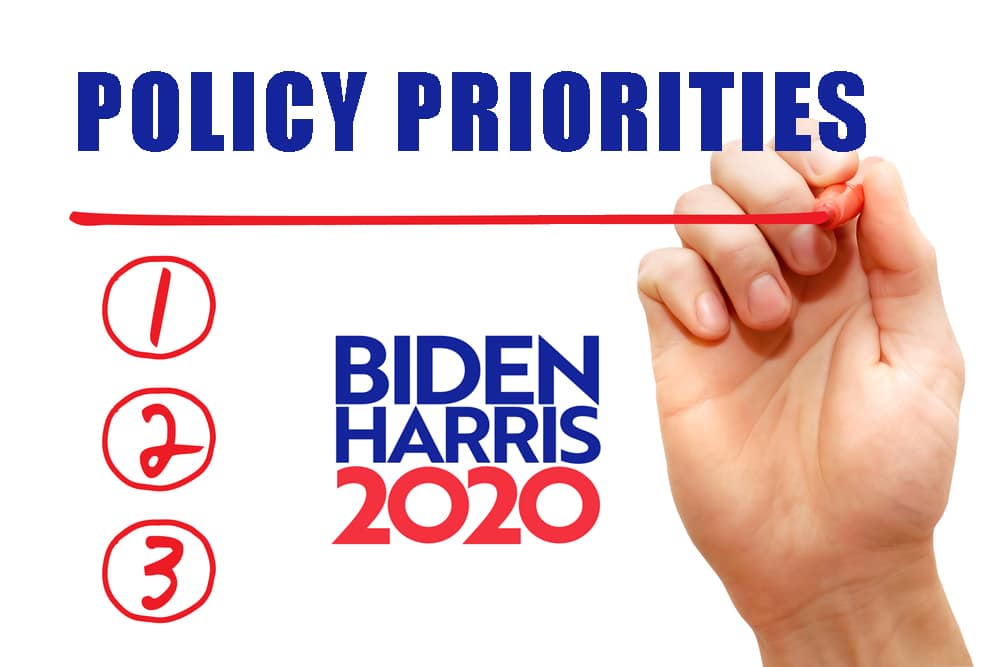 The nation’s transition to the 46th presidential administration are underway. AACTE provided the Biden-Harris Administration’s Education Transition Team with its policy priorities for the coming year. Much of AACTE’s priorities stem from its advocacy throughout the year to increase the federal investment in education in PK-20, with a specific focus on recruiting and sustaining candidates in its education preparation programs.
The nation’s transition to the 46th presidential administration are underway. AACTE provided the Biden-Harris Administration’s Education Transition Team with its policy priorities for the coming year. Much of AACTE’s priorities stem from its advocacy throughout the year to increase the federal investment in education in PK-20, with a specific focus on recruiting and sustaining candidates in its education preparation programs.
As a result of the COVID-19 pandemic, educator preparation stands at a dangerous crossroad. The college and university programs that prepare our teachers, principals, school counselors, and other essential education professionals are experiencing a debilitating wave of closures and faculty layoffs.
30 Nov2020
By Jane E. West
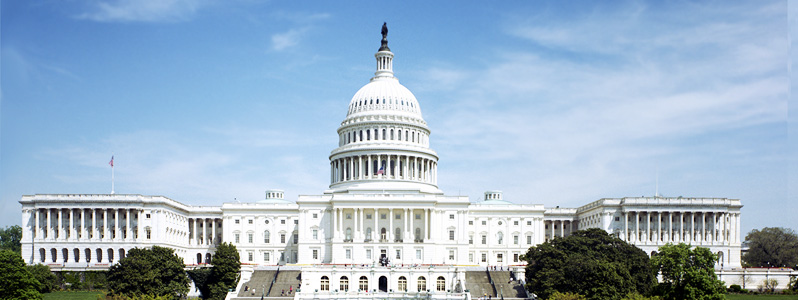
This blog post is written by AACTE consultant Jane West and is intended to provide updated information. The views expressed in this post do not necessarily reflect the views of AACTE.
The Senate returns to town today after Thanksgiving recess. Most pressing is the December 11 deadline to avoid a government shutdown. Meanwhile pressure to address an out-of-control pandemic with a fiscal relief bill does not appear to be in sight. And President Trump continues to challenge the outcome of the Presidential election.
The 116th Congress Moves Toward a Shaky Finish
Progress with finalizing the FY 2021 spending bill is underway, but the outcome is far from certain. The four corners (Democratic and Republican leaders from the House and Senate) have been meeting and appear to be in agreement on top line spending numbers. The four corners also agree that they want a bill. President Trump remains a wild card.
One of four outcomes is possible: 1) Congress completes all the funding bills by December 11 and the President signs them into law; 2) Congressional negotiators are making good progress by December 11 and extend the current level of funding for a week or so while they continue to negotiate; 3) Congress passes a temporary funding measure through March or so, essentially punting decision-making into the next Congress; 4) Congress passes a bill before the end of the year and the President refuses to sign it causing a government shutdown. My money is on number 2. Congress is notorious for stretching out finalization of bills right up until the Christmas break. It’s hard to imagine a government shutdown—even in the midst of the craziness these days—that seems a bridge too far.
02 Nov2020
By Weade James
During the 2020 AACTE Annual Meeting Holmes Program Preconference events, selected scholars participated in the AACTE Holmes Dissertation Funding Competition to receive $5,000 funding support for their dissertation research. AACTE interviews the winner of the 2020 competition, Monique Matute-Chavarria, who completed her study, Parents’ Beliefs of Cultural Considerations During the IEP Process: A Delphi Study, and received her Ph.D. from the Department of Early Childhood, Multilingual, and Special Education at the University of Nevada, Las Vegas.
 How would you describe your experience as a Holmes Scholar? What supports were most impactful and why?
How would you describe your experience as a Holmes Scholar? What supports were most impactful and why?
I was a Holmes Scholar at the University of Nevada, Las Vegas for three years. It was a great experience, and I am grateful for the opportunities the Holmes program afforded me. The Holmes program provided me with several professional development opportunities that helped me craft my goals that I wanted to accomplish in the doctoral program to prepare me for a tenure track position. I gained several skills that assisted me through my journey as a doctoral student, such as academic writing, scholarship opportunities, presenting my research, and serving on the Holmes council. I was also able to network with other Holmes Scholars at other institutions at the AACTE Holmes Preconference and build relationships that have led to lifelong friendships and several opportunities to collaborate on research. I gained a new confidence that I did not have prior to my doctoral studies. I know that I can write for publication, stand before experts in the field, and confidently present and discuss my scholarship. The academic and personal growth I gained from the mentorship helped prepare me for a career in academia.
16 Oct2020
By Ward Cummings
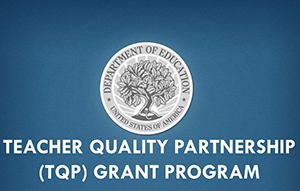 The Department of Education has awarded 23 grants administered as a of part of a pool of funding created to benefit programs including the Teaching Quality Partnership Program (TQP). Of the 10 grants awarded under Teacher Quality Partnerships program—totaling $7.3 million—six of the grantees are AACTE members.
The Department of Education has awarded 23 grants administered as a of part of a pool of funding created to benefit programs including the Teaching Quality Partnership Program (TQP). Of the 10 grants awarded under Teacher Quality Partnerships program—totaling $7.3 million—six of the grantees are AACTE members.
The 23 grants, totaling nearly $100 million, will promote educator development and training in alignment with a signature economic initiative of the Administration. The grants are designed to contribute to the enhancement of the professional development and effectiveness of teachers and principals. Each of the awards went to schools or nonprofits that connect in some way with economic Opportunity Zones to serve economically distressed or underserved communities around the country.
The Teacher Quality Partnership grant program, authorized in Title II of the Higher Education Act, is the only federal initiative designed to strengthen and reform educator preparation at institutions of higher education. Strongly supported by AACTE, TQP grants support the preparation of profession-ready teachers for high-need schools and high-need subject areas. Under this program, partnerships between institutions of higher education and high-need schools and districts compete for funding to develop master’s-level residency programs or to reform undergraduate preservice preparation programs.
05 Oct2020
By Jane E. West
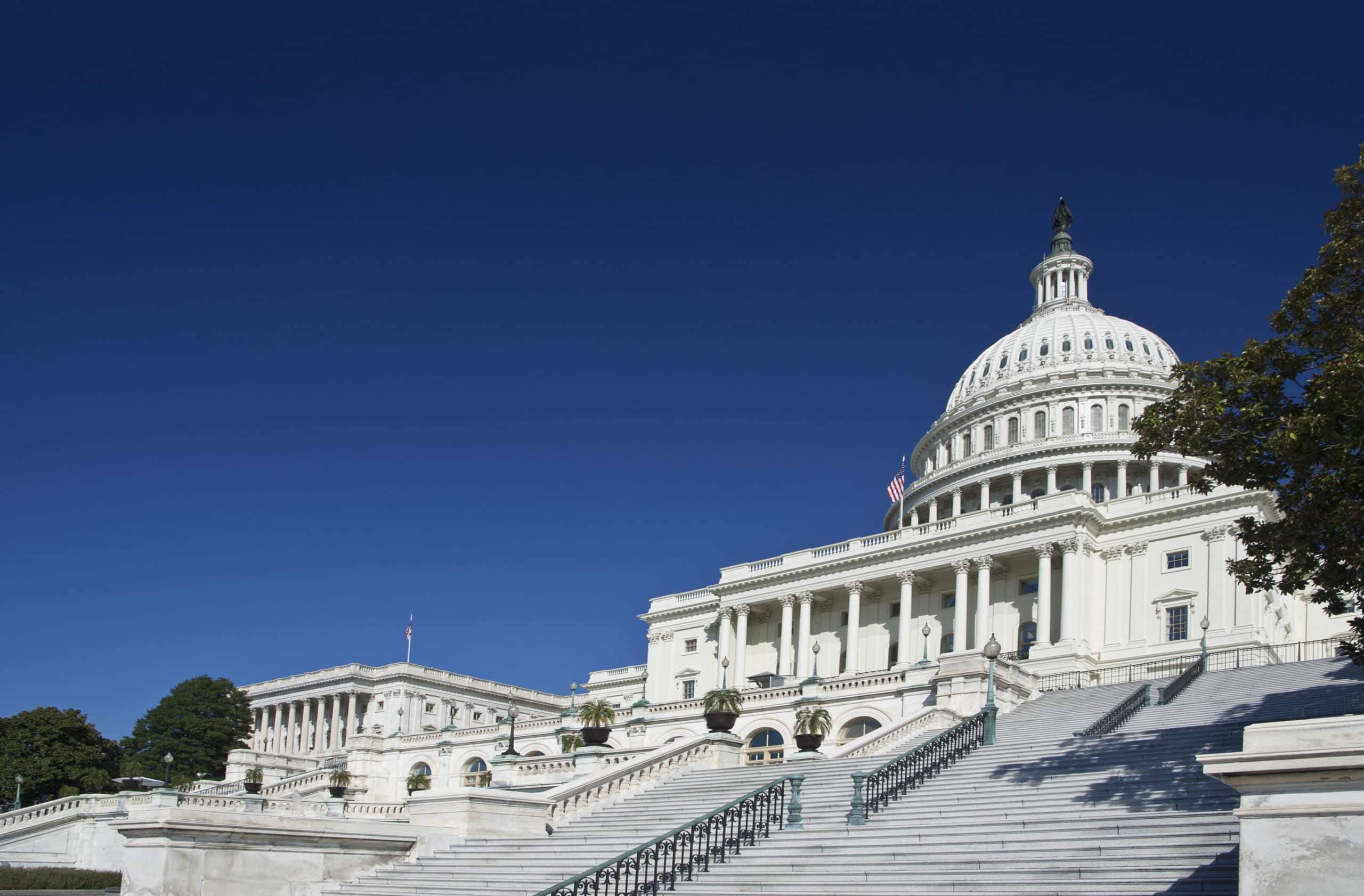 This blog post is written by AACTE consultant Jane West and is intended to provide updated information. The views expressed in this post do not necessarily reflect the views of AACTE.
This blog post is written by AACTE consultant Jane West and is intended to provide updated information. The views expressed in this post do not necessarily reflect the views of AACTE.
The Senate Passes Funding Bill to Avoid Government Shutdown/ COVID Funding Bill Remains Stalled
The federal fiscal year ended on Wednesday, September 30 at midnight. That day, the Senate passed a bill (with a 84-10 bipartisan vote) to keep the government funded at last year’s level temporarily—a stopgap measure called a Continuing Resolution. The House passed the same bill last week with a bipartisan vote. The President signed the bill a few hours after the deadline—early Thursday morning—so that functioning and funding of the federal government continues uninterrupted. The bill expires December 11, after the election, leaving a lame duck session of Congress to deal with it.
In the House, Speaker Pelosi (D-CA) was absorbed in trying to come up with a last-minute deal with the White House to secure a long-awaited next COVID relief package. She met repeatedly with Treasury Secretary Steve Mnuchin, who appears to be the White House’s lead on this, but did not achieve a final deal. So, she turned to her Democratic colleagues in the House and passed a trimmed-down version of the HEROES Act—their COVID relief bill that passed several months ago, but made no headway in the Senate.
21 Sep2020
By Jane E. West
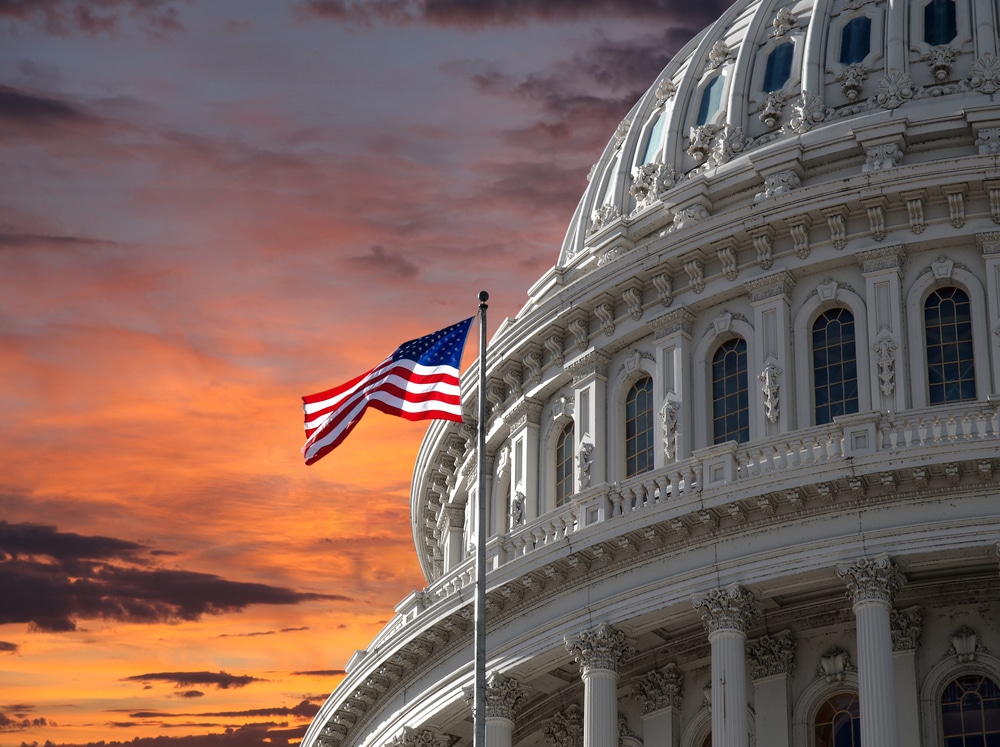
This blog post is written by AACTE consultant Jane West and is intended to provide updated information. The views expressed in this post do not necessarily reflect the views of AACTE.
Congress Looks to Avoid Government Shutdown after Failing to Move COVID Relief Bill
Remember your students who waited until the last minute to turn in their assignments? Well, they are all Members of Congress now! Congress will walk right up to the September 30 deadline before passing a short-term measure that will avoid a government shutdown and keep federal funding flowing. Called a “Continuing Resolution”—or CR—the bill will be a “simple extension” to continue current levels of funding for the time being. The White House, Senate and House leadership agree that this must be passed by the deadline and a shutdown must be avoided.
Two outstanding questions remain. The first is: What will the expiration date be for the CR? The answer is anywhere between mid-December and March.
The second outstanding question is what will and will not be attached to the CR? While all parties are agreeing on a “clean” CR—meaning no “poison pill” amendments—there are always what are known in Washington-speak as “anomalies.” These are friendly changes to law, which are not supposed to be controversial. Of course, ensuring that all parties agree that something is not controversial can be a challenge. Given that passage of a COVID relief bill failed to make progress last week, there will be pressure to add COVID-related provisions to this bill. Most anticipate that there will be no further action on a COVID relief bill until after the election in November. Stay tuned for some action on the CR next week.
14 Sep2020
By Jacqueline Rodriguez
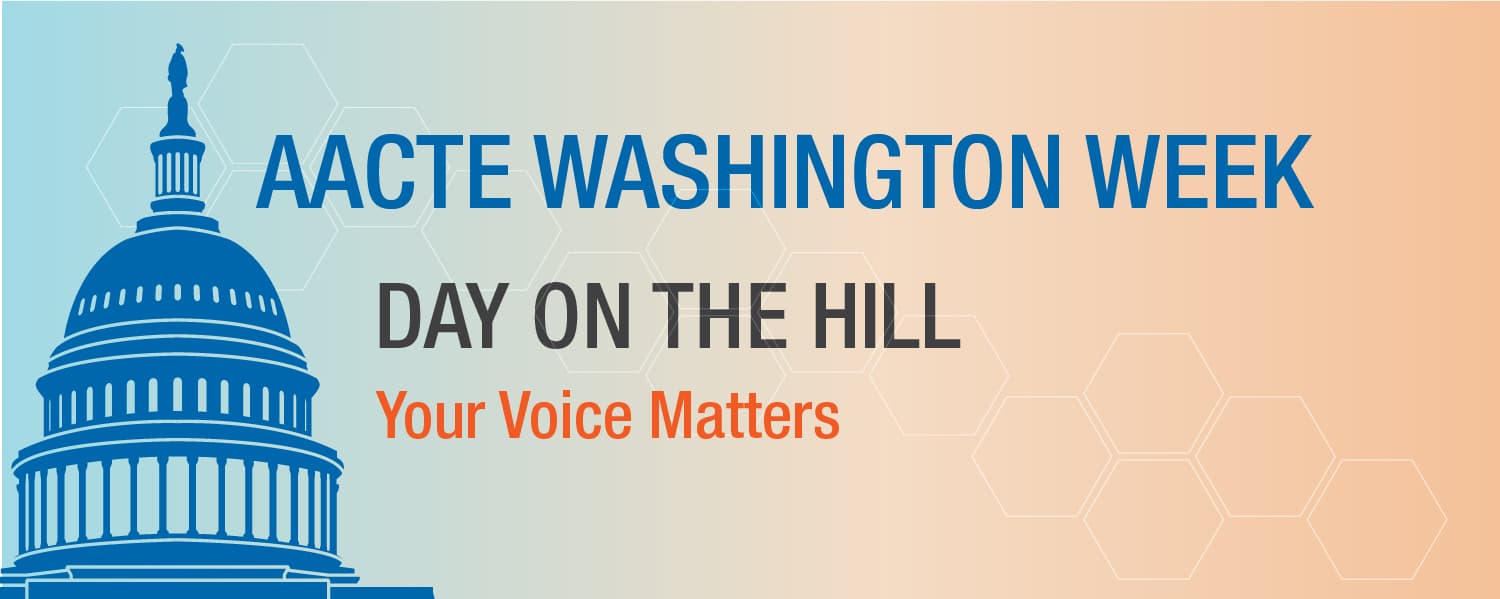 AACTE delivered its first virtual Day on the Hill advocacy event this past week. Over two days, attendees met with Congressional staff, AACTE Committee on Government Relations members, and panelists to develop their advocacy toolkit. This week, the attendees will host two days of Congressional visits with the senators and representatives from their states. AACTE state teams will be advocating for the AACTE 2020 Legislative Priorities, which describe the needs of educator preparation as we address twin pandemics: COVID-19 and racial injustice.
AACTE delivered its first virtual Day on the Hill advocacy event this past week. Over two days, attendees met with Congressional staff, AACTE Committee on Government Relations members, and panelists to develop their advocacy toolkit. This week, the attendees will host two days of Congressional visits with the senators and representatives from their states. AACTE state teams will be advocating for the AACTE 2020 Legislative Priorities, which describe the needs of educator preparation as we address twin pandemics: COVID-19 and racial injustice.
In preparation for their virtual Congressional Visits, attendees practiced how to communicate the priorities to legislative leaders, were briefed on current data related to educator shortages, the important to increase funding toward TEACH grants and Teacher Quality Partnership Grants within educator preparation programs, and the value of funding the Institute for Education Sciences, which is the principal research agency for education in the United States.
In addition, attendees received resources to support their learning. Each of these resources is available to all AACTE members!
11 Sep2020
By Ji Soo Song
 The undersigned members of the COVID-19 Education Coalition offer the following statement on the Delivering Immediate Relief to America’s Families, Schools and Small Businesses Act:
The undersigned members of the COVID-19 Education Coalition offer the following statement on the Delivering Immediate Relief to America’s Families, Schools and Small Businesses Act:
Our coalition is deeply concerned with the Delivering Immediate Relief to America’s Families, Schools and Small Businesses Act because of its low education funding levels, its fixation on physical reopenings of school buildings, and its failure to provide direct support for professional development in online learning. The bill would provide just $70 billion in additional K-12 education stabilization funds, a figure that is far short of the $200 billion that many educational groups feel is required to meet their needs. Additionally, we are concerned that the bill would condition receipt of two-thirds of this funding to the physical reopening of school buildings. This requirement ignores recent reports showing that 95% of districts plan to offer remote instruction to some degree, with about a third planning on remote instruction exclusively. This restriction makes no sense and will only adversely impact marginalized communities, including students of color, homeless students, students in foster care, and students with disabilities.
We also must note that this bill fails to provide separate funding for a key priority: professional development for online learning. Recently released studies point to the urgent need to support educators to deliver effective and equitable learning experiences. For example, more than one-fifth of educators have not received any training as it relates to technology-based remote instruction. A separate survey shows that a majority of novice educators do not feel well-prepared to provide online learning experiences for their students, as their preparation programs had not trained them on research-based technology integration frameworks.
17 Aug2020
By Barbara McKenna

Learning Policy Institute’s (LPI) new study, Measuring Student Socioeconomic Status: Toward a Comprehensive Approach, discusses the limitations of the popular measure and examines alternatives for state policymakers who are seeking to accurately count students from low-income families.
“Changing how we measure and address student poverty is more important than ever,” said LPI Senior Researcher Peter Cookson, who authored the study. “A shift away from the [federal Free and Reduced-Price Lunch] FRPL [program] measure was already long overdue and taking place in some states. This takes on deeper urgency now as learning for a generation of students has been upheaved by the COVID-19 pandemic. Accurately measuring family incomes is necessary if policymakers are to allocate school resources that meet the educational needs of students.”
13 Aug2020
By Bev Makhani
 Washington State University’s Office of Academic Engagement (OAE) was notified by the U.S. Dept. of Education that it is awarding three student support services grants to benefit veterans, STEM students, and future teachers at the university.
Washington State University’s Office of Academic Engagement (OAE) was notified by the U.S. Dept. of Education that it is awarding three student support services grants to benefit veterans, STEM students, and future teachers at the university.
OAE Executive Director Michael Highfill said the grants—totaling over $4 million—will each serve between 120 and 140 low-income and first-generation students annually.
“We are pleased with this federal investment in WSU and our successful efforts to serve students through ambitious and innovative programming,” said Mary F. Wack, vice provost for academic engagement and student achievement. She leads the university division of the same name—which uses the acronym Division of Academic Engagement and Student Achievement (DAESA) and is part of the Office of the Provost and Executive Vice President.
03 Aug2020
By Jane E. West
 Senate Republicans Reveal Proposal for Next COVID Relief Package—a Nonstarter for Democrats
Senate Republicans Reveal Proposal for Next COVID Relief Package—a Nonstarter for Democrats
We ended the week with the chasm between Democrats and Republicans looming as the clock ticks toward recess and campaigning, not to mention expiring unemployment benefits, expired eviction prohibitions and schools and higher education struggling with reopening plans. Leader McConnell revealed the HEALS Act—the Senate Republican response to the House Democratic HEROES Act—as the opener for negotiations on the next COVID relief package. A third proposal, CCERA, was put forward by Senate Democrats. A comparison of education spending in the three bills reveals the following:
 This blog post is written by AACTE consultant Jane West and is intended to provide updated information. The views expressed in this post do not necessarily reflect the views of AACTE.
This blog post is written by AACTE consultant Jane West and is intended to provide updated information. The views expressed in this post do not necessarily reflect the views of AACTE. 







 The nation’s transition to the 46th presidential administration are underway. AACTE provided the Biden-Harris Administration’s Education Transition Team with its policy priorities for the coming year. Much of AACTE’s priorities stem from its advocacy throughout the year to increase the federal investment in education in PK-20, with a specific focus on recruiting and sustaining candidates in its education preparation programs.
The nation’s transition to the 46th presidential administration are underway. AACTE provided the Biden-Harris Administration’s Education Transition Team with its policy priorities for the coming year. Much of AACTE’s priorities stem from its advocacy throughout the year to increase the federal investment in education in PK-20, with a specific focus on recruiting and sustaining candidates in its education preparation programs.
 How would you describe your experience as a Holmes Scholar? What supports were most impactful and why?
How would you describe your experience as a Holmes Scholar? What supports were most impactful and why? The Department of Education has awarded 23 grants administered as a of part of a pool of funding created to benefit programs including the Teaching Quality Partnership Program (TQP). Of the 10 grants awarded under Teacher Quality Partnerships program—totaling $7.3 million—six of the grantees are AACTE members.
The Department of Education has awarded 23 grants administered as a of part of a pool of funding created to benefit programs including the Teaching Quality Partnership Program (TQP). Of the 10 grants awarded under Teacher Quality Partnerships program—totaling $7.3 million—six of the grantees are AACTE members. This blog post is written by AACTE consultant Jane West and is intended to provide updated information. The views expressed in this post do not necessarily reflect the views of AACTE.
This blog post is written by AACTE consultant Jane West and is intended to provide updated information. The views expressed in this post do not necessarily reflect the views of AACTE.
 AACTE delivered its first virtual Day on the Hill advocacy event this past week. Over two days, attendees met with Congressional staff, AACTE Committee on Government Relations members, and panelists to develop their advocacy toolkit. This week, the attendees will host two days of Congressional visits with the senators and representatives from their states. AACTE state teams will be advocating for the
AACTE delivered its first virtual Day on the Hill advocacy event this past week. Over two days, attendees met with Congressional staff, AACTE Committee on Government Relations members, and panelists to develop their advocacy toolkit. This week, the attendees will host two days of Congressional visits with the senators and representatives from their states. AACTE state teams will be advocating for the  The undersigned members of the COVID-19 Education Coalition offer the following statement on the Delivering Immediate Relief to America’s Families, Schools and Small Businesses Act:
The undersigned members of the COVID-19 Education Coalition offer the following statement on the Delivering Immediate Relief to America’s Families, Schools and Small Businesses Act:
 Washington State University’s Office of Academic Engagement (OAE) was notified by the U.S. Dept. of Education that it is awarding three student support services grants to benefit veterans, STEM students, and future teachers at the university.
Washington State University’s Office of Academic Engagement (OAE) was notified by the U.S. Dept. of Education that it is awarding three student support services grants to benefit veterans, STEM students, and future teachers at the university. Senate Republicans Reveal Proposal for Next COVID Relief Package—a Nonstarter for Democrats
Senate Republicans Reveal Proposal for Next COVID Relief Package—a Nonstarter for Democrats